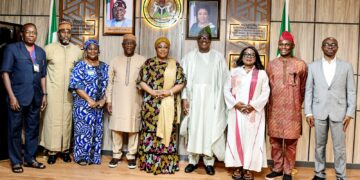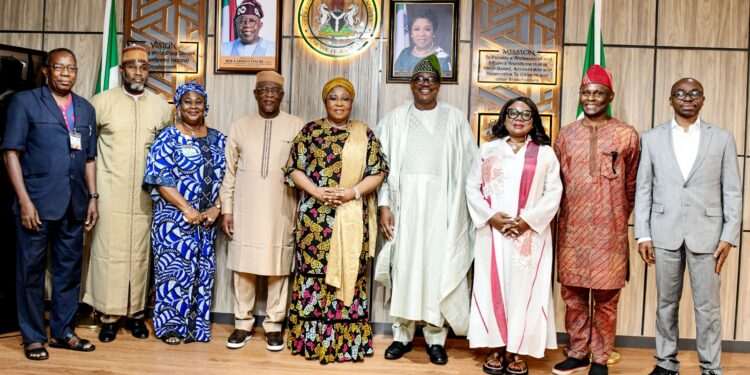By Ebi Kesiena
The Head of the Civil Service of the Federation, Mrs. Didi Esther Walson-Jack, has inaugurated an Editorial Committee for a landmark publication chronicling the history of the Nigerian Civil Service.
The event marks a significant step in the Federal Government’s ongoing efforts to preserve institutional memory, promote administrative scholarship, and document the Civil Service’s transformative journey over the decades.
This was contained in a statement signed by the Director of Information and Public Relations, Mrs. Eno Olotu, following the inauguration ceremony led by the Head of the Civil Service of the Federation, Mrs. Walson-Jack, at the OHCSF Conference Room in Abuja.
In her remarks, Walson-Jack described the upcoming publication as a “legacy document and national asset,” intended to capture the evolution, reforms, and future aspirations of the Civil Service. She noted that beyond serving as a historical archive, the book would be a crucial policy tool and academic reference, aligned with the Civil Service Strategy and Implementation Plan 2021–2025.
Walson-Jack reiterated the central role of the Civil Service as a stabilising force in Nigeria’s governance, stressing the importance of documenting its journey to inspire future generations and promote institutional memory.
The Editorial Committee, chaired by retired Permanent Secretary Dr. Habiba Lawal and comprising respected former civil servants, scholars, and consultants, has been tasked with reviewing the manuscript, ensuring historical accuracy, and aligning the work with professional publishing standards. The publication is expected to include insights from all living former Heads of the Civil Service and trace the institution’s journey from the colonial era to present-day innovations in digital governance.
Meanwhile, in her response, the Committee Chairman, Dr. Habiba Lawal, OON, represented by Sir Olusegun Adekunle, OON, commended the Head of Service for her visionary leadership. She noted that the Civil Service has consistently served as a non-partisan and resilient institution, making significant contributions to Nigeria’s development from the pre-colonial era to the present.
The book, once completed, will serve as a vital resource for policymakers, scholars, and public administrators seeking to understand and advance Nigeria’s public service.



































